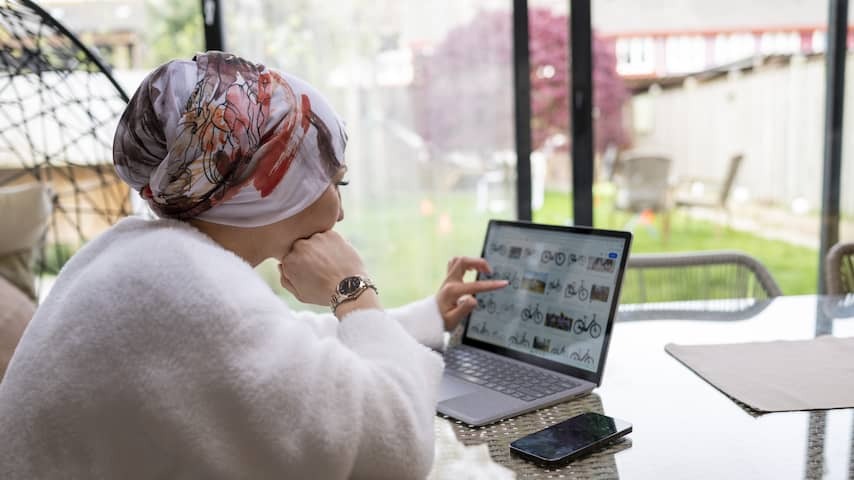
Websites in EU worden toegankelijker
Alle digitale diensten en producten die in de Europese Unie verkocht worden, moeten sinds zaterdag toegankelijk zijn voor mensen met een handicap. Dat staat in de European Accessibility Act (EAA).
In Nederland wonen ongeveer twee miljoen mensen met een handicap. Dankzij de regeling kunnen zij voortaan makkelijker websites bezoeken, bankdiensten regelen of een treinkaartje kopen. De nieuwe maatregelen om toegankelijker te worden zijn bijvoorbeeld ondertiteling of een gebruiksaanwijzing in makkelijke taal.
“Je moet een e-reader bijvoorbeeld blind kunnen installeren”, zegt Eric Velleman, Lector Inclusive Digital Design & Engineering, tegen NU.nl. Dankzij een voorleesfunctie kun je een e-reader installeren zonder te kunnen lezen. Het apparaat leest hardop voor wat er op het scherm staat en waarop je klikt.
In Nederland bestaat de regeling al sinds 2019 voor overheidsinstanties, maar geldt nu ook voor bedrijven in de EU. Dat is een belangrijke stap, vindt Velleman. Voorheen golden in alle Europese landen verschillende regels voor toegankelijkheid. Om dat op te lossen zijn bedrijven met de Europese Commissie om tafel gegaan. Nu zijn ze overal in de EU hetzelfde.
Velleman benadrukt dat de regeling niet alleen nuttig is voor mensen met een handicap. Mensen die bijvoorbeeld hun arm breken en even niet kunnen typen, hebben ook wat aan een spraakfunctie. “Het legt de basis voor een toegankelijkere wereld.”
Proef met gratis lidmaatschap bij bibliotheken in Limburg
De provincie Limburg start een proef om mensen met een minimuminkomen gratis lidmaatschap van de bibliotheek aan te bieden.
Het experiment start in september in de gemeenten Venlo, Gennep en Landgraaf, meldt de provincie. De gemeenten geven mensen met een minimuminkomen een voucher. Als de proef een succes is, wordt het gratis lidmaatschap in alle gemeenten ingezet. Al zal dat dan nog wel een aantal jaar duren.
Gedeputeerde Marc van Caldenberg (SP) stelt dat een goede beheersing van taal helpt bij “het verkleinen van achterstanden”. Volgens hem biedt het meer kans op schoolsucces, betere mogelijkheden op de arbeidsmarkt en kunnen mensen hierdoor actiever meedoen aan de samenleving.
Limburg startte onlangs ook een proef met gratis regionaal openbaar vervoer buiten de spitsuren voor mensen met een laag inkomen. Vooralsnog is dat project, Dal Vrij Limburg, beschikbaar voor mensen in zeven grote gemeenten. De komende tijd sluiten ook andere gemeenten aan.
Ernstig bedreigde bergbongo’s beschermd in Limburgse dierentuin
Twee vrouwelijke bergbongo’s zijn aangekomen in de Zuid-Limburgse dierentuin GaiaZOO. De dierentuin draagt zo bij aan de bescherming van de ernstig bedreigde soort.
Het zoogdier lijkt een beetje op een kruising tussen een zebra en een hert, zoals op de foto onder deze tekst te zien is.
In het wild leven naar schatting minder dan honderd bergbongo’s. Hun leefgebied wordt steeds kleiner door ontbossing en landbouw. Ook illegale jacht, valstrikken en ziektes die worden overgedragen door loslopend vee maken de bergbongo moeilijk.
Volgens GaiaZOO moeten de twee bergbongo’s nog even wennen aan hun vernieuwde en uitgebreide verblijf. Ze hopen uiteindelijk een mannetje aan het verblijf toe te voegen.
GaiaZOO is onderdeel van een wereldwijd netwerk van dierentuinen en natuurorganisaties die zich samen inzetten om het uitsterven van onder meer de bergbongo te voorkomen. Ook werken de parken samen op het gebied van onderzoek en educatie.
Nieuwe behandeling voor zeldzame ziekte APDS
De tiener Mary Catchpole uit Groot-Brittannië heeft als eerste in Europa een nieuwe behandeling gekregen tegen de zeldzame ziekte APDS.
APDS is een afweerstoornis waarbij een enzym te veel signalen aan het afweersysteem geeft. Patiënten krijgen last van luchtweginfecties of vergrote organen. Sommigen krijgen ook auto-immuunklachten. Bij deze klachten denkt het afweersysteem dat lichaamseigen materiaal een infectie is en begint daartegen te vechten.
De nieuwe behandeling blokkeert het enzym. Het afweersysteem werkt dan weer normaal. De dokter van Catchpole zegt dat de behandeling de ziekte mogelijk kan genezen.
Catchpole vertelt aan BBC dat ze nu weer aan de toekomst kan denken. Ze is niet bang meer dat ze elk moment een infectie kan oplopen als ze in de buurt van mensen is.
Websites in EU become more accessible
All digital services and products sold in the European Union have been required to be accessible to people with disabilities since Saturday. This is stated in the European Accessibility Act (EAA).
Approximately two million people with disabilities live in the Netherlands. Thanks to the regulation, they can now more easily visit websites, arrange banking services, or buy a train ticket. The new measures to become more accessible include subtitling or instructions in plain language.
“You have to be able to install an e-reader blindly, for example,” says Eric Velleman, Lector Inclusive Digital Design & Engineering, to NU.nl. Thanks to a read-aloud function, you can install an e-reader without being able to read. The device reads aloud what is on the screen and what you click on.
In the Netherlands, the regulation has been in place since 2019 for government agencies, but now also applies to companies in the EU. That is an important step, Velleman believes. Previously, different accessibility rules applied in all European countries. To solve this, companies sat down with the European Commission. Now they are the same everywhere in the EU.
Velleman emphasizes that the regulation is not only useful for people with disabilities. People who, for example, break their arm and cannot type for a while also benefit from a speech function. “It lays the foundation for a more accessible world.”
Pilot project with free library membership in Limburg
The province of Limburg is starting a pilot project to offer people with a minimum income free membership of the library.
The experiment will start in September in the municipalities of Venlo, Gennep and Landgraaf, the province reports. The municipalities give people with a minimum income a voucher. If the trial is successful, the free membership will be implemented in all municipalities. However, that will take a number of years.
Provincial Executive Marc van Caldenberg (SP) states that a good command of language helps to “reduce disadvantages”. According to him, it offers more opportunities for school success, better opportunities in the labor market and allows people to participate more actively in society.
Limburg recently also started a trial with free regional public transport outside peak hours for people with a low income. For the time being, that project, Dal Vrij Limburg, is available for people in seven large municipalities. Other municipalities will also join in the near future.
Critically endangered mountain bongos protected in Limburg zoo
Two female mountain bongos have arrived at the GaiaZOO in South Limburg. The zoo contributes to the protection of the critically endangered species.
The mammal looks a bit like a cross between a zebra and a deer, as can be seen in the photo below this text.
It is estimated that less than a hundred mountain bongos live in the wild. Their habitat is becoming smaller due to deforestation and agriculture. Illegal hunting, traps and diseases transmitted by free-roaming livestock also make the mountain bongo difficult.
According to GaiaZOO, the two mountain bongos need some time to get used to their renovated and expanded residence. They eventually hope to add a male to the stay.
GaiaZOO is part of a global network of zoos and nature organizations that work together to prevent the extinction of, among other things, the mountain bongo. The parks also work together in the field of research and education.

New treatment for rare disease APDS
Teenager Mary Catchpole from Great Britain is the first in Europe to receive a new treatment for the rare disease APDS.
APDS is an immune disorder in which an enzyme gives too many signals to the immune system. Patients suffer from respiratory infections or enlarged organs. Some also experience autoimmune complaints. With these complaints, the immune system thinks that the body’s own material is an infection and starts fighting against it.
The new treatment blocks the enzyme. The immune system then works normally again. Catchpole’s doctor says the treatment may be able to cure the disease.
Catchpole tells BBC that she can now think about the future again. She is no longer afraid that she will catch an infection at any moment if she is near people.